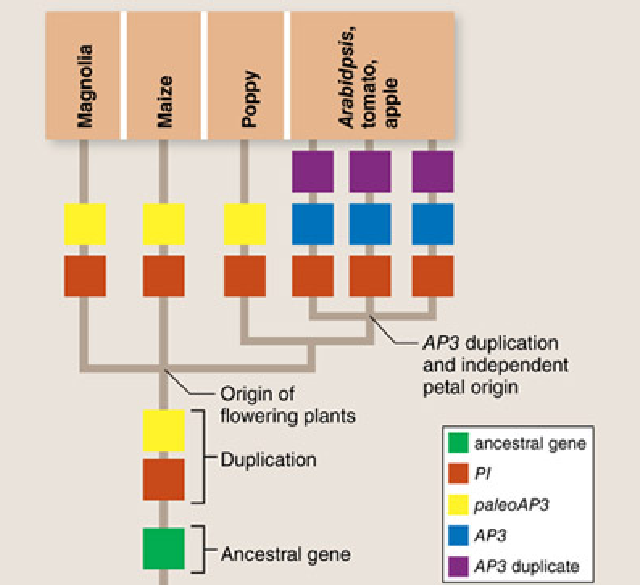_______ is when the allele frequencies of a population are NOT changing over time.
a) vicariance
b) microevolution
c) genetic equilibrium
d) speciation
Answer: c) genetic equilibrium
You might also like to view...
Use the figure shown, and what you learned from the text, to choose the true statements about the evolution of flower development. Arabidopsis, tomato, and apple are the eudicots. (choose all that apply)

_____ PI evolved before the most recent common ancestor of all flowering plants.
_____ The eudicots do not have stamens.
_____ PaleoAP3 controls petal development in the eudicots.
_____ With the duplication of paleoAP3, AP3 gained a role in stamen development.
_____ AP3 with a role in petal development is a shared derived character of eudicots.
Clarify Question
· What is the key concept addressed by the question?
· What type of thinking is required?
· What key words does the question contain and what do they mean?
Gather Content
· What do you already know about the evolution of flower development genes?
Consider Possibilities
· Consider the different answer options. Which can you rule out?
Choose Answer
· Given what you now know, what information and/or problem solving approach is most likely to produce the correct answer?
Reflect on Process
· Did your problem-solving process lead you to the correct answer? If not, where did the process break down or lead you astray? How can you revise your approach to produce a more desirable result?
Scientists use ____ sampling to estimate the population size of mobile animals
a. mark–recapture b. random c. plot
d. base e. homogeneous
When Pavlov's dog salivated after hearing a bell, this exemplified
A. classical conditioning. B. operant conditioning. C. habituation. D. nonassociative learning.
Excessive collagen formation often results in a hard, raised scar. This is called:
a. keloid b. adhesion c. dehiscence d. secondary union